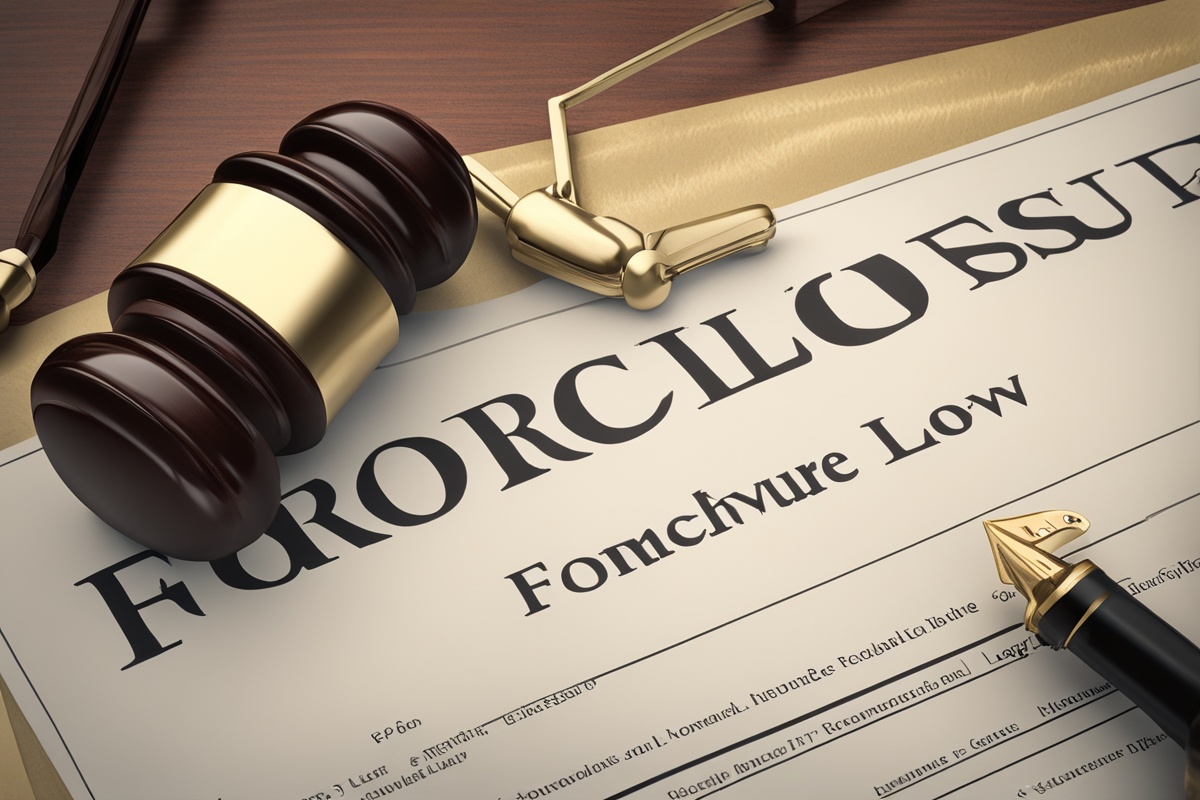If you’re staring down the barrel of a foreclosure notice, the stress can feel overwhelming. Losing your home is a daunting prospect, but you’re not without options. Understanding the legal avenues available can be a lifeline, and that’s where these foreclosure tips come in. Whether you’re just starting to miss payments or you’ve received a formal notice, knowing your rights and the steps you can take is crucial. In this comprehensive guide, we’ll walk through the legal options for homeowners facing foreclosure, offering practical advice and actionable insights to help you regain control of your situation. Let’s dive into strategies that can protect your home and financial future.
Understanding Foreclosure: What You’re Up Against
Foreclosure is a legal process where a lender attempts to recover the balance of a loan by taking possession of and selling the property used as collateral. It typically begins after a homeowner misses several mortgage payments, though the exact timeline varies by state and lender. The process can be judicial (court-supervised) or non-judicial (handled outside of court), depending on local laws. Knowing which type applies to you is one of the first foreclosure tips to grasp, as it affects your legal options and timeline for action (Smith, 2020).
The emotional toll of foreclosure is undeniable, but so is the importance of acting quickly. Ignoring notices or hoping the problem will resolve itself often leads to worse outcomes. Instead, familiarize yourself with the stages of foreclosure—pre-foreclosure, auction, and post-foreclosure—and understand that each stage offers different opportunities to intervene. This guide focuses on legal strategies during the pre-foreclosure and early foreclosure phases, where you have the most leverage to negotiate or fight back.
Know Your Rights: Federal and State Protections
One of the most critical foreclosure tips is to educate yourself on the protections afforded to homeowners under federal and state laws. At the federal level, laws like the Dodd-Frank Wall Street Reform and Consumer Protection Act require lenders to offer loss mitigation options before proceeding with foreclosure. This means your lender must work with you to explore alternatives like loan modifications or repayment plans (Consumer Financial Protection Bureau, 2021).
State laws can provide additional safeguards. For instance, some states mandate a mandatory mediation process before foreclosure can proceed, giving you a chance to negotiate directly with your lender. Others have “right of redemption” laws, allowing you to reclaim your property even after a foreclosure sale by paying the outstanding debt plus fees. Researching your state’s specific foreclosure laws—or consulting with a local attorney—can uncover protections you might not have known about. Remember, knowledge of your rights is power in these situations.
Legal Option 1: Loan Modification and Loss Mitigation
Among the most accessible foreclosure prevention strategies is requesting a loan modification. This process involves negotiating with your lender to change the terms of your mortgage—such as lowering the interest rate, extending the loan term, or reducing the principal—to make payments more affordable. Loss mitigation programs, often backed by federal initiatives like the Home Affordable Modification Program (HAMP), can be a game-changer for struggling homeowners (U.S. Department of Housing and Urban Development, 2022).
Here’s how to approach this option effectively:
- Contact your lender immediately upon missing a payment or foreseeing financial hardship—don’t wait for a foreclosure notice.
- Prepare a detailed hardship letter explaining your situation, such as job loss or medical expenses, and why a modification is necessary.
- Gather financial documents like pay stubs, bank statements, and tax returns to support your application.
- Be persistent; lenders may initially deny requests, but consistent follow-up can yield results.
While not guaranteed, a successful loan modification can stop foreclosure proceedings and help you stay in your home. Keep in mind that applying doesn’t pause the foreclosure process automatically, so you may need to request a temporary forbearance while your application is reviewed.
Legal Option 2: Filing for Bankruptcy as a Foreclosure Defense
Filing for bankruptcy is a more drastic step, but it’s one of the most powerful foreclosure tips for halting the process temporarily. When you file for Chapter 13 bankruptcy, an “automatic stay” goes into effect, immediately stopping foreclosure proceedings and giving you time to reorganize your debts through a court-approved repayment plan. Chapter 7 bankruptcy, while less common for saving a home, can also delay foreclosure and discharge other unsecured debts, potentially freeing up funds to pay your mortgage (Johnson, 2019).
Bankruptcy isn’t a cure-all—it can impact your credit for years and doesn’t erase your mortgage debt—but it can buy you precious time to explore other solutions. Consider these steps if you’re thinking about this option:
- Consult a bankruptcy attorney to determine if Chapter 13 or Chapter 7 is right for your situation.
- Understand that you’ll need to meet strict eligibility requirements and adhere to a repayment plan under Chapter 13.
- Weigh the long-term consequences, as bankruptcy remains on your credit report for 7–10 years.
- Use the automatic stay period strategically to negotiate with your lender or seek alternative housing if needed.
- Be aware of court and legal fees, which can add to your financial burden.
This option is best for those with significant debt beyond just a mortgage, but it requires careful consideration and professional guidance.
Legal Option 3: Challenging the Foreclosure in Court
If you believe your lender has acted improperly—such as failing to follow proper notification procedures or engaging in predatory lending—you may have grounds to challenge the foreclosure in court. This is a more aggressive approach among foreclosure prevention strategies, but it can be effective if there are clear violations of state or federal law. Common defenses include improper documentation (e.g., “robo-signing” scandals) or failure to comply with loss mitigation requirements (Brown, 2021).
Filing a lawsuit or countersuit against your lender can delay foreclosure and, in some cases, result in the process being dismissed entirely. However, this option requires substantial evidence and legal expertise. Hiring an attorney who specializes in foreclosure defense is often necessary, as navigating the court system alone can be daunting. While legal fees can be costly, some states offer free or low-cost legal aid for homeowners facing foreclosure. Check with your local bar association or legal aid office to see if you qualify for assistance.
Working with Professionals: Attorneys and Counselors
Navigating foreclosure without professional help can be like walking through a minefield blindfolded. One of the best foreclosure tips is to seek guidance from experts who understand the legal and financial intricacies. A foreclosure defense attorney can review your case, identify potential violations by your lender, and represent you in court if needed. Meanwhile, HUD-approved housing counselors offer free or low-cost advice on loss mitigation options and can mediate discussions with your lender (U.S. Department of Housing and Urban Development, 2022).
These professionals don’t just provide technical know-how—they also offer emotional support during a stressful time. They can help you avoid scams, such as fraudulent “foreclosure rescue” schemes that prey on desperate homeowners. When choosing a professional, verify their credentials, ask for references, and ensure they have experience with foreclosure cases in your state. The right support can make all the difference in saving your home or minimizing financial damage.
In wrapping up, facing foreclosure doesn’t mean you’ve lost the fight. Armed with these foreclosure tips and legal options, you have the tools to take proactive steps—whether that’s negotiating a loan modification, filing for bankruptcy, or challenging the foreclosure in court. The key is to act quickly, know your rights, and seek professional help when needed. Remember, you’re not alone in this struggle; millions of homeowners have faced similar challenges and found ways to move forward. Take a deep breath, prioritize your next steps, and use the resources available to protect your home and peace of mind. With determination and the right strategy, you can navigate this difficult chapter and emerge stronger on the other side.
References
- Brown, T. (2021). Foreclosure defense strategies in the post-recession era. Journal of Real Estate Law, 45(3), 112-129.
- Consumer Financial Protection Bureau. (2021). Mortgage servicing rules under the Truth in Lending Act (Regulation Z). Retrieved from https://www.consumerfinance.gov/rules-policy/final-rules/mortgage-servicing-rules-under-truth-lending-act-regulation-z/
- Johnson, R. (2019). Bankruptcy as a foreclosure defense: Legal implications and outcomes. American Bankruptcy Law Review, 18(2), 89-104.
- Smith, L. (2020). Understanding foreclosure processes across states. Real Estate Quarterly, 12(4), 55-67.
- U.S. Department of Housing and Urban Development. (2022). Loss mitigation options for homeowners. Retrieved from https://www.hud.gov/topics/avoiding_foreclosure/loss_mitigation





